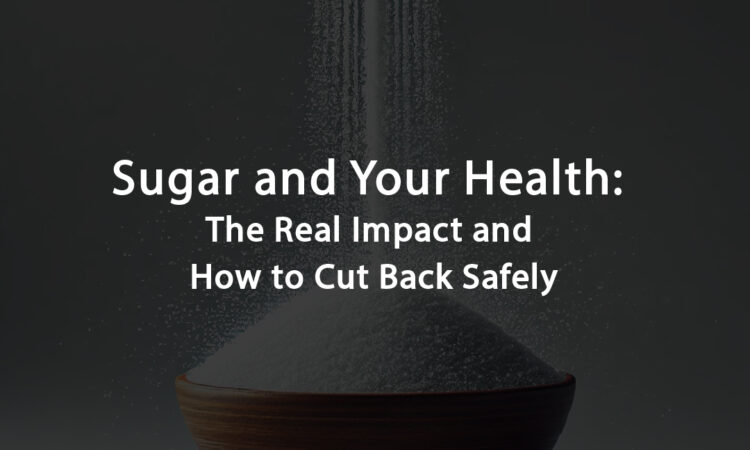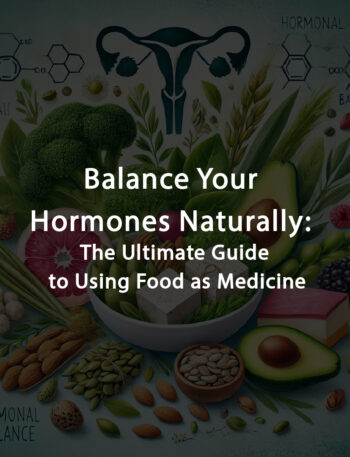Sugar has become one of the most debated topics in the world of nutrition and health. Once considered a harmless sweetener, it is now often blamed for a wide range of health issues, from obesity and diabetes to heart disease and mental health problems. But what is the real story behind sugar? How does it affect our bodies, and is all sugar bad for us? In this comprehensive article, we will delve into the different types of sugar, how they impact our health, and effective ways to reduce sugar intake without sacrificing taste and enjoyment.
What Is Sugar?
At its most basic level, sugar is a type of carbohydrate that the body uses for energy. It exists in many forms, the most common being glucose, fructose, and sucrose. These sugars are found naturally in many foods, but they are also added to processed foods and beverages to enhance flavor and texture.
Types of Sugar
- Natural Sugars: These are sugars naturally occurring in whole foods like fruits, vegetables, and dairy products. Examples include fructose in fruits and lactose in milk. Natural sugars are generally considered healthier because they come with additional nutrients like fiber, vitamins, and minerals.
- Added Sugars: These are sugars added to foods during processing or preparation. Common added sugars include table sugar (sucrose), high fructose corn syrup, and sweeteners like honey and maple syrup. These sugars are often found in processed foods, baked goods, and sugary drinks and contribute to “empty calories” with little to no nutritional benefit.
How Sugar Affects the Body
While sugar is a necessary energy source for the body, excessive consumption can lead to a host of health problems. Understanding how sugar affects the body can help you make informed decisions about your diet.
1. Blood Sugar Spikes and Crashes
When you consume foods high in sugar, your blood sugar levels rise rapidly. This causes the pancreas to release insulin, a hormone that helps regulate blood sugar levels. A sudden spike in blood sugar can lead to an energy boost, but it is often followed by a crash, leaving you feeling tired, irritable, and craving more sugar.
2. Weight Gain and Obesity
Excessive sugar intake is strongly linked to weight gain and obesity. Sugary foods and drinks are high in calories but low in nutrients, leading to an imbalance between energy intake and expenditure. This can result in the accumulation of excess body fat over time.
3. Increased Risk of Type 2 Diabetes
Consistently high blood sugar levels can lead to insulin resistance, where the body’s cells become less responsive to insulin. This condition is a precursor to type 2 diabetes, a chronic disease characterized by high blood sugar levels and an increased risk of serious health complications.
4. Heart Health
High sugar consumption can negatively impact heart health. It contributes to weight gain, increases blood pressure, and raises levels of triglycerides (a type of fat found in the blood), all of which are risk factors for heart disease.
5. Impact on Mental Health
Emerging research suggests that high sugar intake may also affect mental health. Excessive consumption of sugary foods has been linked to an increased risk of depression and anxiety. The rapid fluctuations in blood sugar levels can impact mood and cognitive function, contributing to feelings of irritability and fatigue.
Natural vs. Added Sugars: What’s the Difference?
While both natural and added sugars are chemically similar, they are not created equal in terms of health impact.
Natural Sugars
Natural sugars are found in whole foods like fruits, vegetables, and dairy products. These foods provide essential nutrients such as fiber, vitamins, and minerals, which help slow down the absorption of sugar into the bloodstream. This results in a more gradual rise in blood sugar levels and reduces the risk of energy crashes.
Health Benefits of Natural Sugars:
- Fruits and vegetables are rich in antioxidants and fiber, which support digestion and help maintain stable blood sugar levels.
- Dairy products provide calcium and protein, which are essential for bone health and muscle function.
Examples of Natural Sugars:
- Fructose (found in fruits)
- Lactose (found in dairy products)
- Glucose (found in vegetables and whole grains)
Added Sugars
Added sugars, on the other hand, are often found in processed and packaged foods. These sugars are added during manufacturing to enhance flavor, texture, and shelf life. Unlike natural sugars, added sugars provide no nutritional benefits and can lead to a range of health problems when consumed in excess.
Health Risks of Added Sugars:
- Contribute to weight gain and obesity
- Increase the risk of type 2 diabetes and heart disease
- Can lead to tooth decay and cavities
Examples of Added Sugars:
- Table sugar (sucrose)
- High fructose corn syrup (found in sodas and processed foods)
- Honey and maple syrup (when added to foods and beverages)
How Much Sugar Is Too Much?
The American Heart Association (AHA) recommends that men limit their intake of added sugars to no more than 9 teaspoons (36 grams) per day, while women should aim for no more than 6 teaspoons (25 grams) per day. However, most people consume far more than these recommended limits, often without realizing it.
For context, a single can of soda contains about 10 teaspoons (40 grams) of added sugar, exceeding the daily limit for both men and women in just one serving.
The Hidden Sources of Sugar
Sugar is often hidden in foods that you might not expect. Being aware of these hidden sources can help you make healthier choices and reduce your overall sugar intake.
- Condiments and Sauces: Ketchup, barbecue sauce, and salad dressings often contain high amounts of added sugar.
- Yogurt: Many flavored yogurts contain added sugars, even those labeled as “healthy” or “low-fat.”
- Granola and Breakfast Cereals: These are often marketed as health foods but can be loaded with sugar.
- Breads and Baked Goods: Many breads, muffins, and pastries contain added sugars.
- Packaged Snacks: Crackers, chips, and protein bars may contain added sugars for flavor and texture.
Tips for Reducing Sugar Intake
Reducing sugar intake doesn’t mean you have to give up all your favorite foods. With a few simple strategies, you can cut back on added sugars and improve your overall health.
1. Read Food Labels
Check the nutrition labels of packaged foods for added sugars. Look for terms like “sucrose,” “fructose,” “glucose,” “corn syrup,” and “honey.” The closer these ingredients are to the top of the list, the higher the sugar content.
2. Choose Whole Foods
Opt for whole, unprocessed foods whenever possible. Fruits, vegetables, whole grains, and lean proteins are naturally low in sugar and provide essential nutrients that support overall health.
3. Swap Sugary Drinks for Water or Herbal Teas
Sugary beverages are one of the biggest contributors to excessive sugar intake. Replace sodas and fruit juices with water, herbal teas, or sparkling water with a splash of lemon or lime.
4. Cut Back Gradually
If you’re used to a high-sugar diet, cutting back suddenly can be challenging. Start by reducing the amount of sugar you add to your coffee or cereal, and gradually decrease your consumption of sugary snacks and desserts.
5. Use Natural Sweeteners in Moderation
While natural sweeteners like honey, maple syrup, and coconut sugar are better alternatives to refined sugar, they should still be used in moderation. They contain calories and can contribute to weight gain if consumed in large amounts.
6. Cook and Bake at Home
Cooking and baking at home allow you to control the amount of sugar in your meals and desserts. Experiment with using less sugar or substituting with natural sweeteners.
7. Choose Unsweetened Products
Look for products labeled “unsweetened” or “no added sugar.” These include yogurt, nut butters, and plant-based milks. You can always add fresh fruit or a small amount of honey if you need extra sweetness.
8. Be Mindful of Portion Sizes
Enjoy sugary treats in moderation and be mindful of portion sizes. Sharing desserts or opting for smaller portions can help satisfy your sweet tooth without overindulging.
Long-Term Benefits of Reducing Sugar Intake
Cutting back on sugar can have a profound impact on your overall health and well-being. Here are some long-term benefits you can expect:
1. Improved Weight Management
Reducing sugar intake can help prevent weight gain and support weight loss efforts. It also reduces the risk of developing obesity-related health conditions like type 2 diabetes and heart disease.
2. Better Blood Sugar Control
For individuals with diabetes or prediabetes, reducing sugar intake can help stabilize blood sugar levels and improve insulin sensitivity.
3. Enhanced Energy Levels
By avoiding the blood sugar spikes and crashes associated with high sugar consumption, you can enjoy more stable energy levels throughout the day.
4. Improved Heart Health
Lowering your sugar intake can help reduce blood pressure, cholesterol levels, and inflammation, all of which are risk factors for heart disease.
5. Healthier Teeth
Reducing sugar intake can significantly lower the risk of tooth decay and cavities. It also helps maintain healthy gums and overall oral health.
6. Better Mental Health
Emerging research suggests that reducing sugar intake may improve mood and reduce the risk of mental health disorders such as depression and anxiety.
Sugar Substitutes: Are They a Healthy Alternative?
Many people turn to sugar substitutes like artificial sweeteners and sugar alcohols as a way to reduce calorie and sugar intake. But are they really a healthier alternative?
1. Artificial Sweeteners
Artificial sweeteners like aspartame, sucralose, and saccharin are low- or zero-calorie sugar substitutes. While they can help reduce calorie intake, some studies suggest that they may disrupt gut bacteria, increase sugar cravings, and contribute to weight gain when consumed in large amounts.
2. Sugar Alcohols
Sugar alcohols like xylitol, erythritol, and sorbitol are lower in calories than sugar and do not cause rapid spikes in blood sugar levels. However, they can cause digestive discomfort, including bloating and diarrhea, when consumed in large quantities.
3. Natural Sweeteners
Natural sweeteners like stevia and monk fruit extract are derived from plants and contain little to no calories. They are generally considered safe and can be a good alternative for those looking to reduce sugar intake without using artificial sweeteners.
Understanding the effects of sugar on your health is the first step toward making healthier dietary choices. While natural sugars found in whole foods like fruits and vegetables are an important part of a balanced diet, added sugars in processed foods and sugary beverages can contribute to a range of health problems.
By becoming more aware of the hidden sources of sugar and making small, sustainable changes to your diet, you can reduce your sugar intake and enjoy the long-term benefits of better health and well-being. Remember, moderation is key, and it’s possible to enjoy the sweetness of life without compromising your health.






